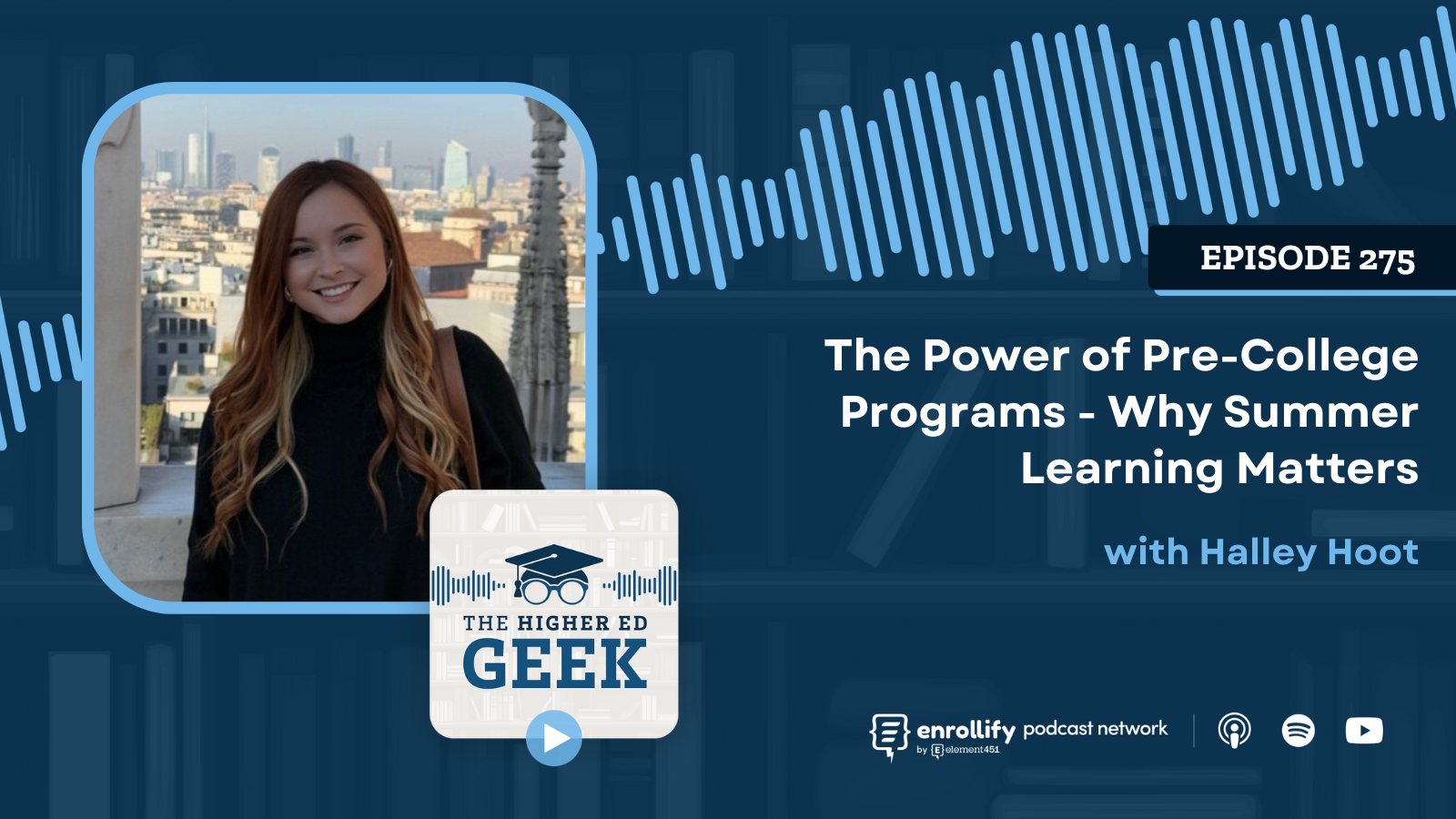About the Episode
About the Episode: Arina joins Dustin to share her perspective on how institutions can better lay out pathways from work to college and vice versa. She has examined the landscape thoroughly to find several gaps in how organizations work to support learners who have earned the increasingly complex world of microcredentials.
Bridging Gaps: From Education to Employment
Recognizing Diverse Learning Experiences
A standout point in their conversation is the emphasis on recognizing the value of diverse learning experiences, including those gained outside traditional classroom settings.
Arina shares her own journey and the foundation of her startup, Let Me Graduate, which aimed to enhance the visibility and acknowledgment of alternative learning opportunities, such as CLEP tests and programs recognized by the American Council on Education. This example highlights the importance of creating educational pathways that not only accommodate but also credit the wide range of learning experiences students bring to their academic pursuits, thereby facilitating smoother transitions into relevant careers.
Simplifying the Transfer Process
The complexities of the credit transfer system serve as a significant barrier to seamless education-to-employment pathways. The conversation sheds light on the frustrations many students face, especially those attempting to navigate the convoluted process of transferring credits between institutions.
By referencing the often confusing and opaque articulation agreements, Arina underscores the need for higher education institutions to adopt more transparent and standardized policies. This change would empower students to make informed decisions and plan their educational journeys with a clearer understanding of how each step contributes to their career goals.
Creating Pathways to Good Jobs
A forward-thinking solution discussed in the episode revolves around the concept of "good jobs" and the creation of stackable credentials that offer a clear, tangible connection between education and employment opportunities.
Arina suggests a model where learning achievements, such as apprenticeships or certifications, can be progressively built upon through higher education degrees, culminating in enhanced career prospects. This approach not only validates the importance of practical skills but also demonstrates how educational institutions can play a pivotal role in structuring pathways that directly lead to rewarding careers.
Advocating for Competency-Based Education
The conversation also touches on the potential of competency-based education as a means to more accurately reflect a student's abilities and readiness for the workforce.
This educational model prioritizes the mastery of skills over the traditional time-based criteria, offering a more personalized and flexible learning experience. By aligning educational outcomes with the competencies sought by employers, institutions can better prepare students for the challenges and opportunities of the modern job market.
Towards a Future of Flexibility and Inclusion
Both Dustin and Arina converge on the potential for positive change through the development of more adaptable and personalized educational pathways. They envision a future where students can navigate through their educational and professional journeys with greater autonomy, supported by transparent policies and innovative learning models that acknowledge all forms of learning.
The conversation also touches upon the vital role of institutions in providing clear, accessible pathways that can guide students towards fulfilling careers, underscoring the importance of adaptability, recognition of diverse learning experiences, and the alignment of education with career goals.
Key Takeaways:
- The urgent need for higher education to adopt more flexible, inclusive pathways that recognize and credit diverse learning experiences.
- The importance of aligning educational outcomes with real-world skills and career pathways to better support student success and workforce readiness.
- The potential for policy reform and innovative educational models to facilitate smoother transitions between education and employment, particularly for non-traditional students.
This episode is a clarion call for educators, policymakers, and industry leaders to collaborate in reimagining the future of higher education. By fostering an ecosystem that values flexibility, inclusivity, and the holistic assessment of student achievements, we can unlock untapped potential and pave the way for a more equitable and efficient pathway from college to career.
About the Show: The Higher Ed Geek Podcast explores the impact of edtech on the student experience by speaking with diverse leaders from institutions, companies, and nonprofit organizations. Each week we aim to provide an engaging, fun, and relevant dose of professional development that honors the wide range of work happening all across the higher ed ecosystem. Come geek out with us! The Higher Ed Geek Podcast is hosted by Dustin Ramsdell and is a proud member of the Enrollify Podcast Network.















